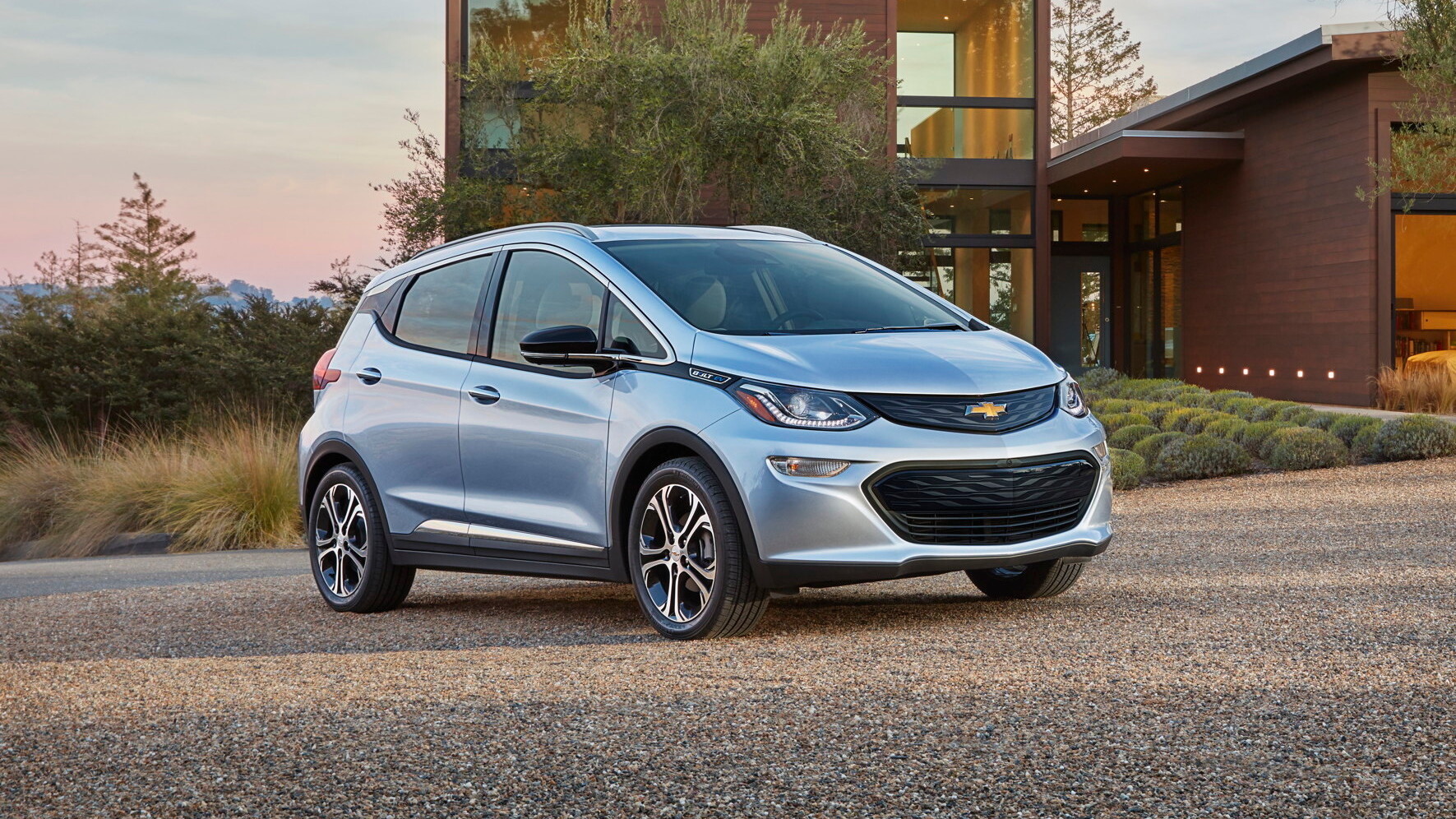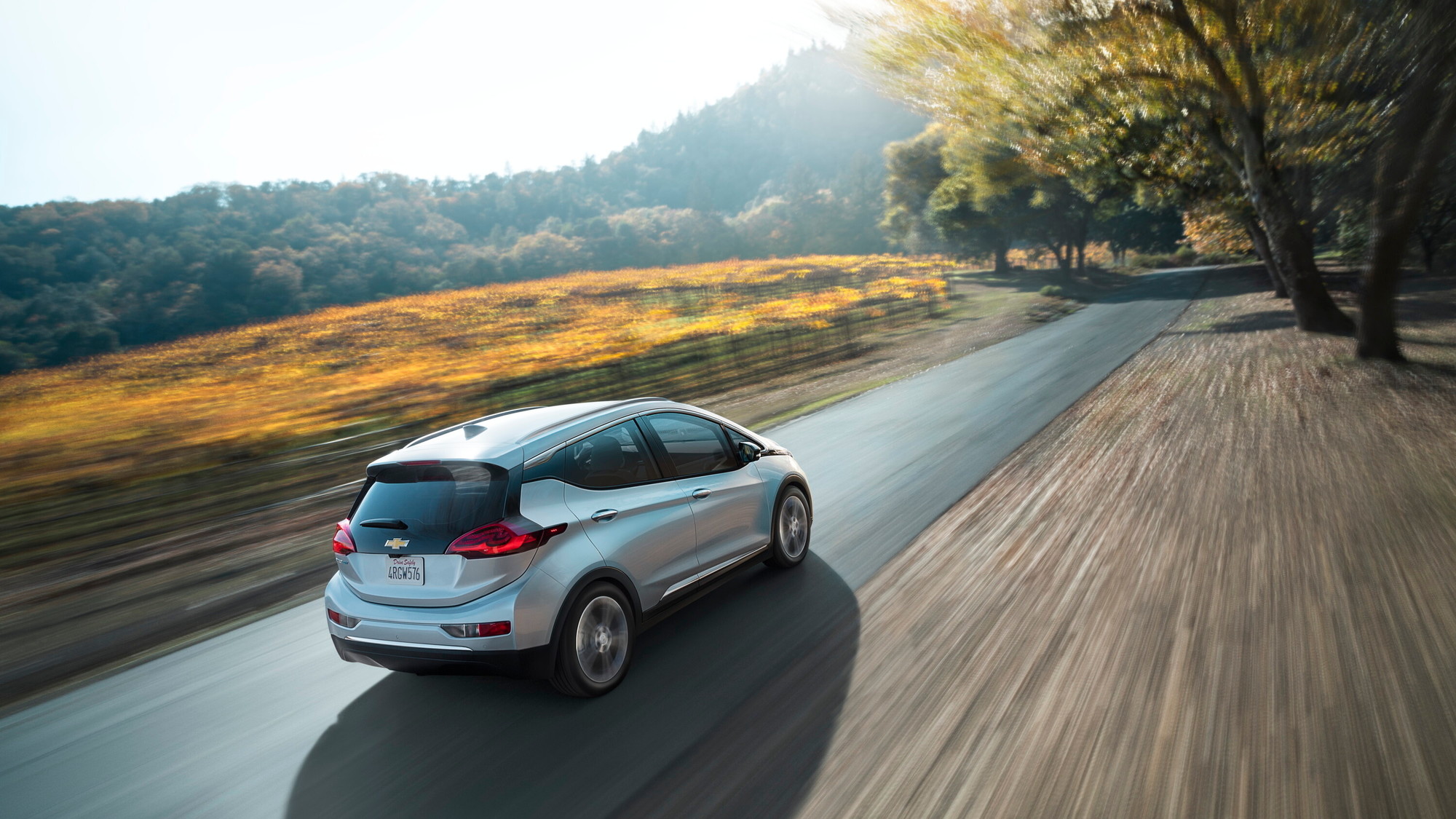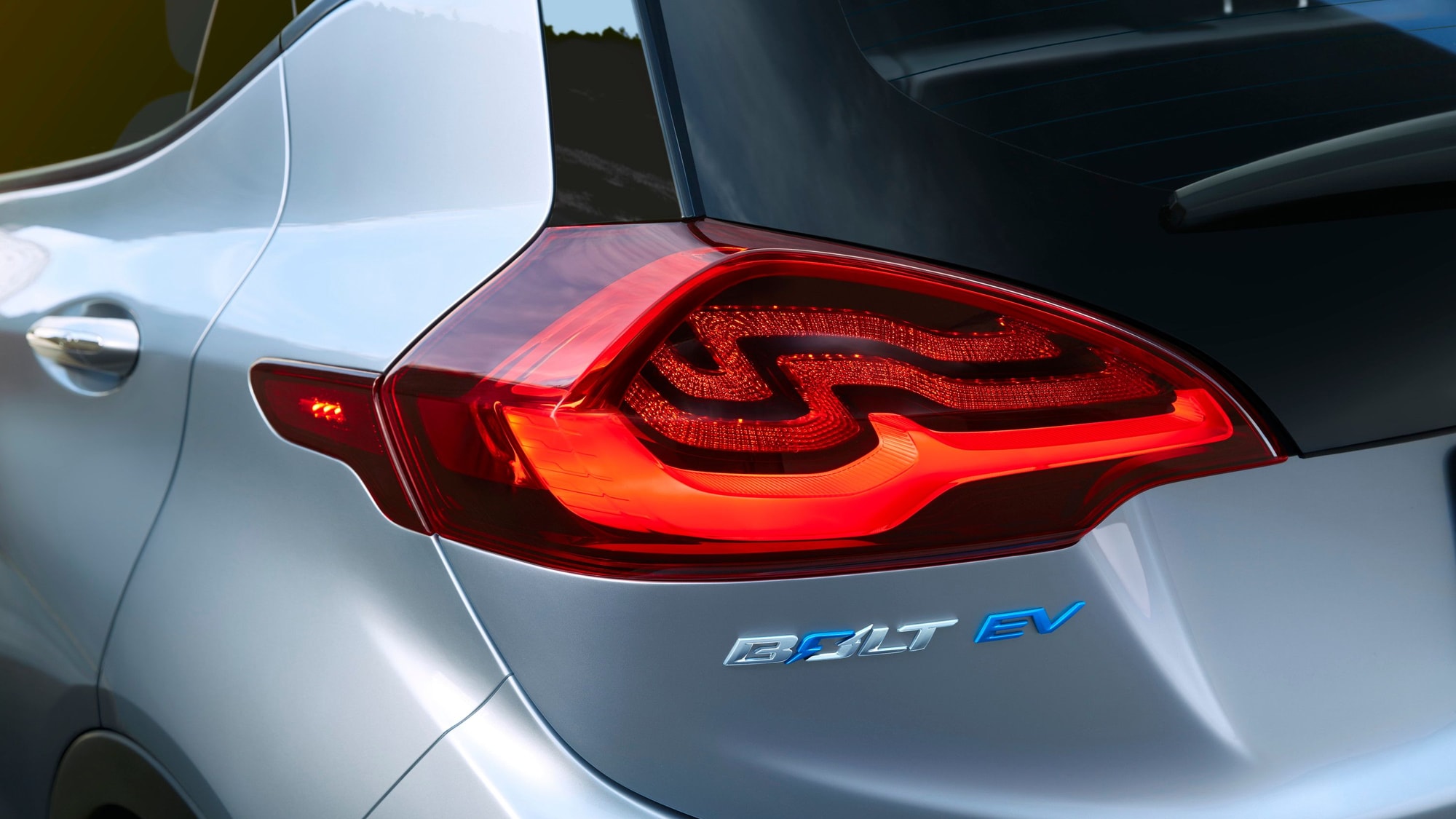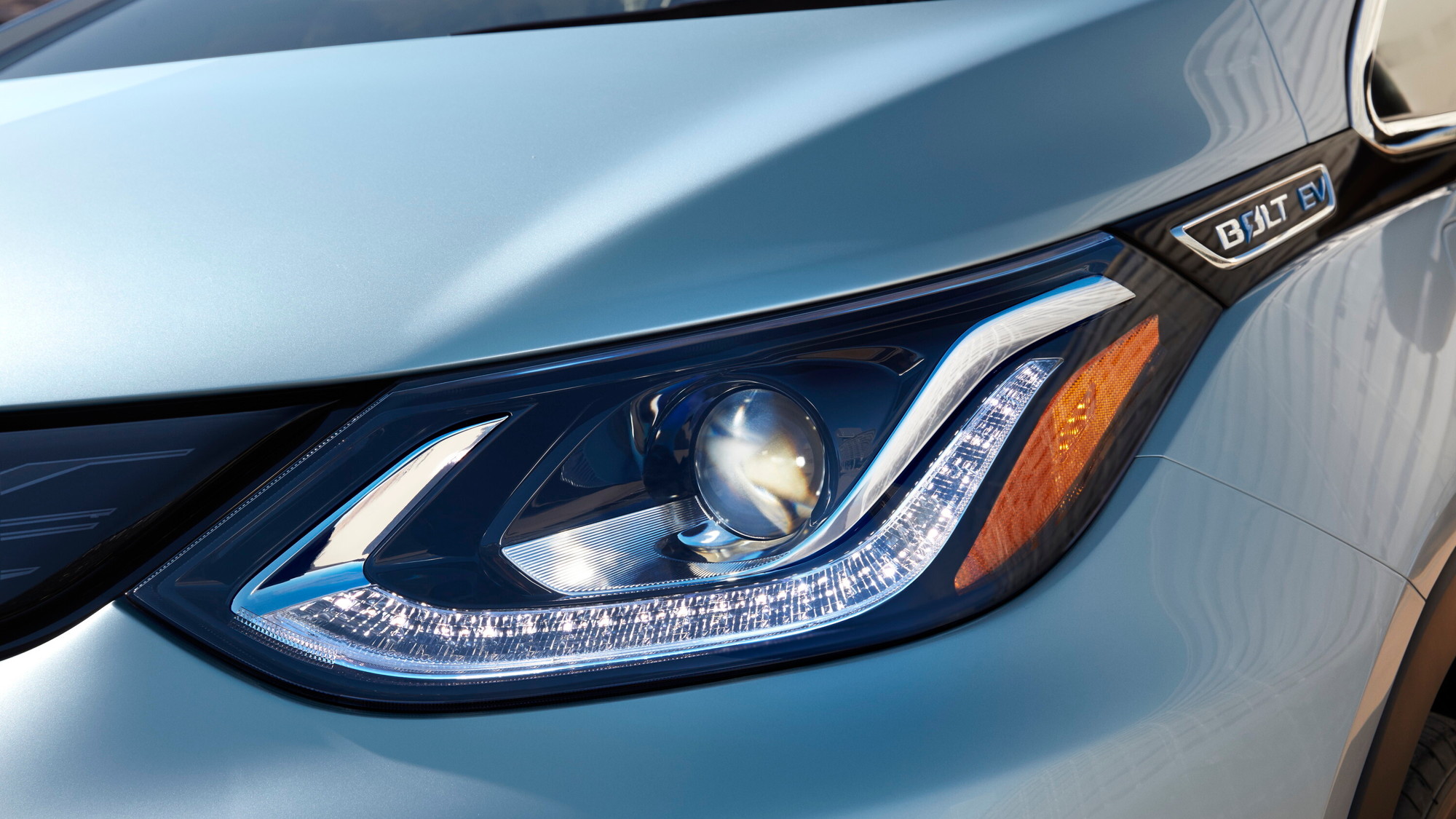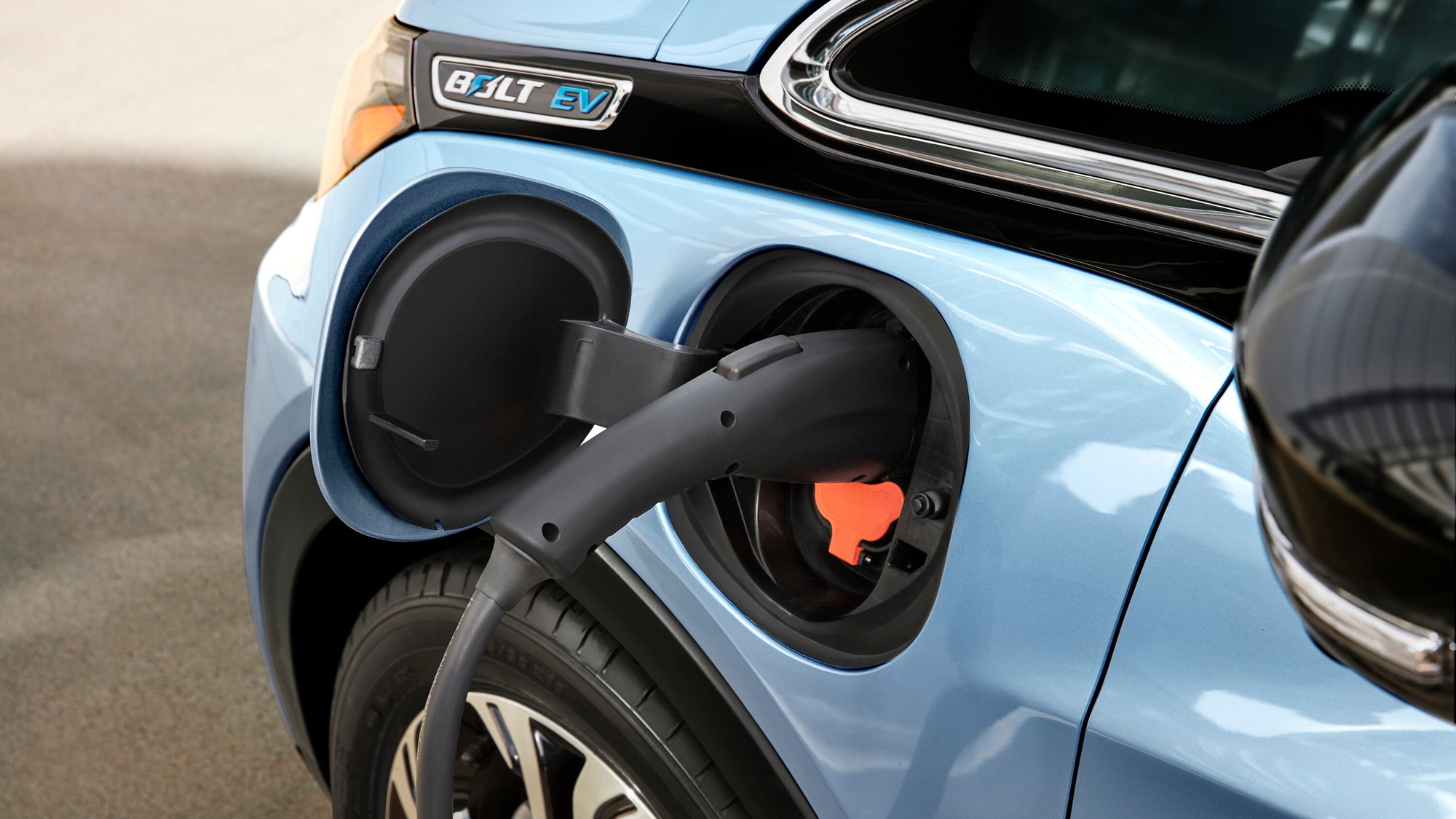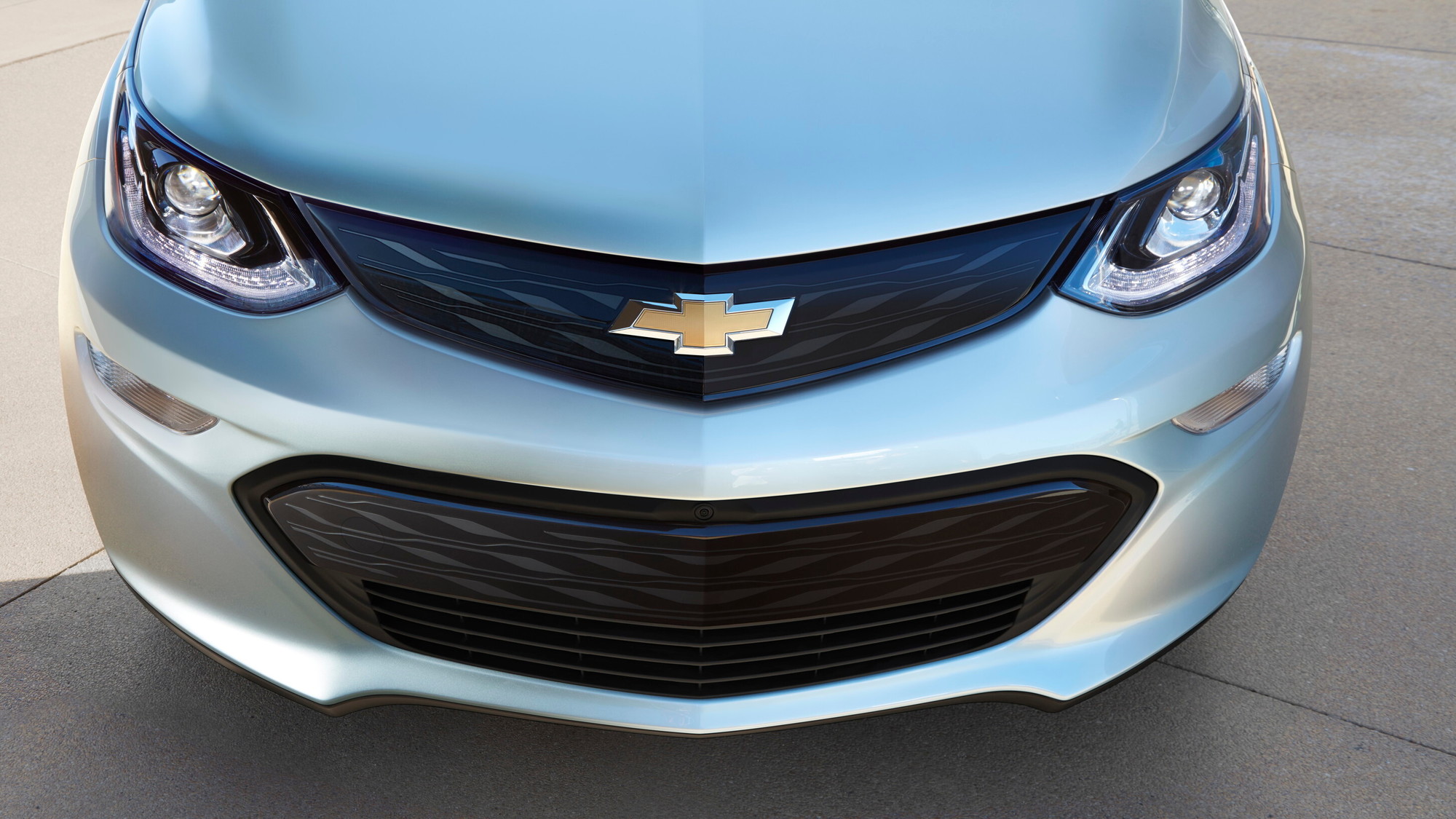The 2017 Chevrolet Bolt EV will be the world's first mass-priced electric car with a range of 200 miles or more. That alone makes it a hugely important new market entry.
Going on sale in late 2016 or early 2017, just six years after modern electric cars arrived, the Bolt EV represents a second generation of cars running solely on battery energy recharged from the grid.
And at least in part, it's a reaction by General Motors—one of the world's three largest carmakers—to a perceived threat by startup maker Tesla Motors.
DON'T MISS: First Drive: Chevy Bolt EV 200-Mile Electric Car Development Vehicle
The 2017 Bolt EV will compete against other new plug-in vehicles, including a second-generation Nissan Leaf that should arrive within a year or so of the Bolt's debut.
The Tesla Model 3 is supposed to go into production in the second half of 2017, with 200-plus miles of range and a starting price of $35,000.
Updated longer-range versions of earlier electric cars, including the BMW i3 and Volkswagen e-Golf, will also act as competitors.

President Barack Obama sits in 2017 Chevrolet Bolt EV electric car at Detroit Auto Show, Jan 2016
But the Bolt EV, whose precise range has yet to be revealed, will stand alone at least in its first year as the sole electric car with more than 200 miles of range and a price below $40,000 before incentives.
It's a five-door hatchback, whose relatively small footprint hides a huge volume of interior room—94.4 cubic feet, or as much as a Tesla Model S, Chevy says, though differently organized and with a lot more headroom.
That's two segments larger than you'd expect from the car, which resembles an upright compact hatchback.
WATCH VIDEO: 2017 Chevy Bolt EV pre-production cars now being built (Mar 2016)
While Chevy refers to the Bolt EV in some of its marketing as a "crossover utility vehicle," it's not what most buyers would consider a crossover, since it has neither the high ground clearance nor the available all-wheel drive that characterize the more car-like SUV substitutes.
The powertrain, jointly developed by Chevrolet and Korean electronics giant LG, is comprised of a 60-kilowatt-hour battery under the floorpan that powers an electric motor driving the front wheels that has peak output up to 150 kilowatts (200 horsepower).
A prototype Bolt EV we drove in January accelerated briskly, rode smoothly, and felt somewhat less appliance-like than the earlier and less powerful Nissan Leaf, which is currently the world's best-selling electric car.
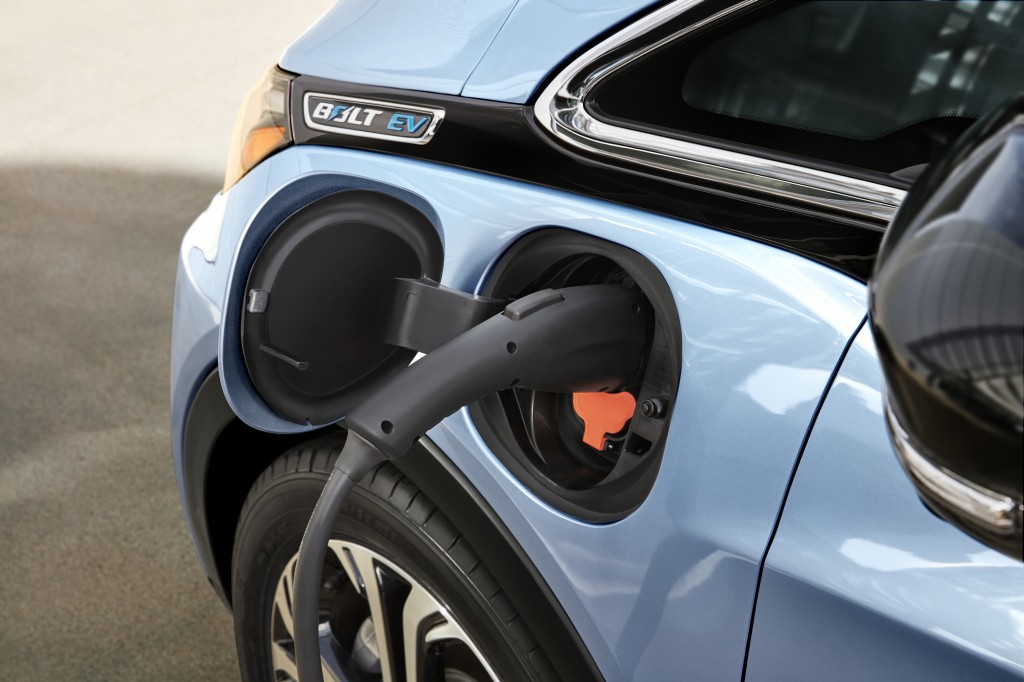
2017 Chevrolet Bolt EV
Acceleration from 0 to 60 mph is less than 7 seconds, according to GM, and we were able to chirp the inside front tire under full power out of a turn during our brief test drive.
With the weight of the battery at the car's lowest point, the Bolt EV cornered relatively flat on its 17-inch alloy wheels, and the steering self-centered nicely.
CHECK OUT: Bolt EV Powertrain: How Did GM And LG Collaborate On Design, Production?
No motor or electronics whine was audible at any point, and the brake feel was consistent enough that we didn't feel any transitions between regenerative and friction braking in our two laps.
Advanced electronics will be a big part of the Bolt's appeal, with a standard 10.2-inch touchscreen in the center of the dash, fully digital instruments in an 8-inch panel behind the steering wheel, and a new generation of Chevy's user interface for vehicle information and entertainment systems.

2017 Chevrolet Bolt EV
The Bolt's thin fonts on a bright white background look more like a mobile website to be swiped and expanded as they do like old-school automotive instruments.
Bolt EVs are also likely to be mobile test-beds for GM's ambitious goals for partially autonomous vehicles and, perhaps within 10 or 15 years, fully self-driving cars.
IMPORTANT CONTEXT: Is Chevy Bolt EV's Main Mission To Marginalize Tesla Electric Cars?
GM has declined to say when the Bolt EV will go on sale, where the earliest sales will be located (California is a good guess), or what its production plans will be.
Per General Motors CEO Mary Barra's surprise unveiling of the car at the 2015 Detroit Auto Show, the price will start at $37,500. The Bolt will qualify for a $7,500 federal income-tax credit and various state incentives.
_______________________________________
